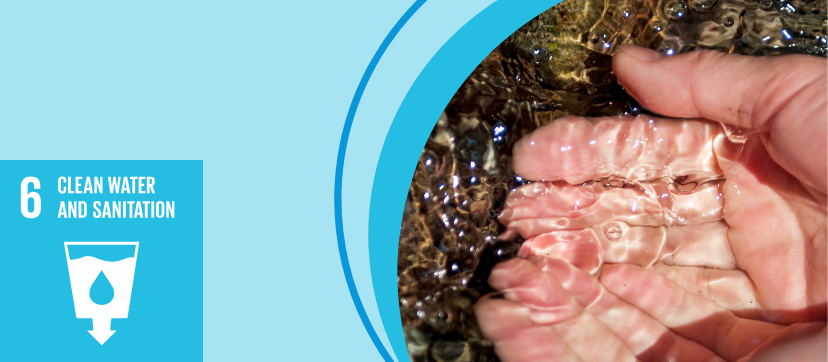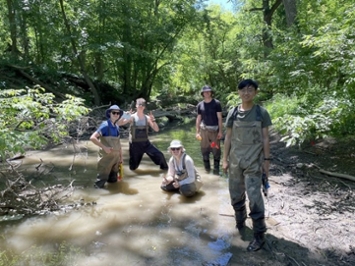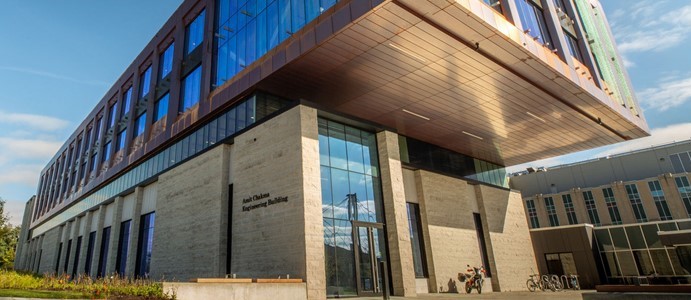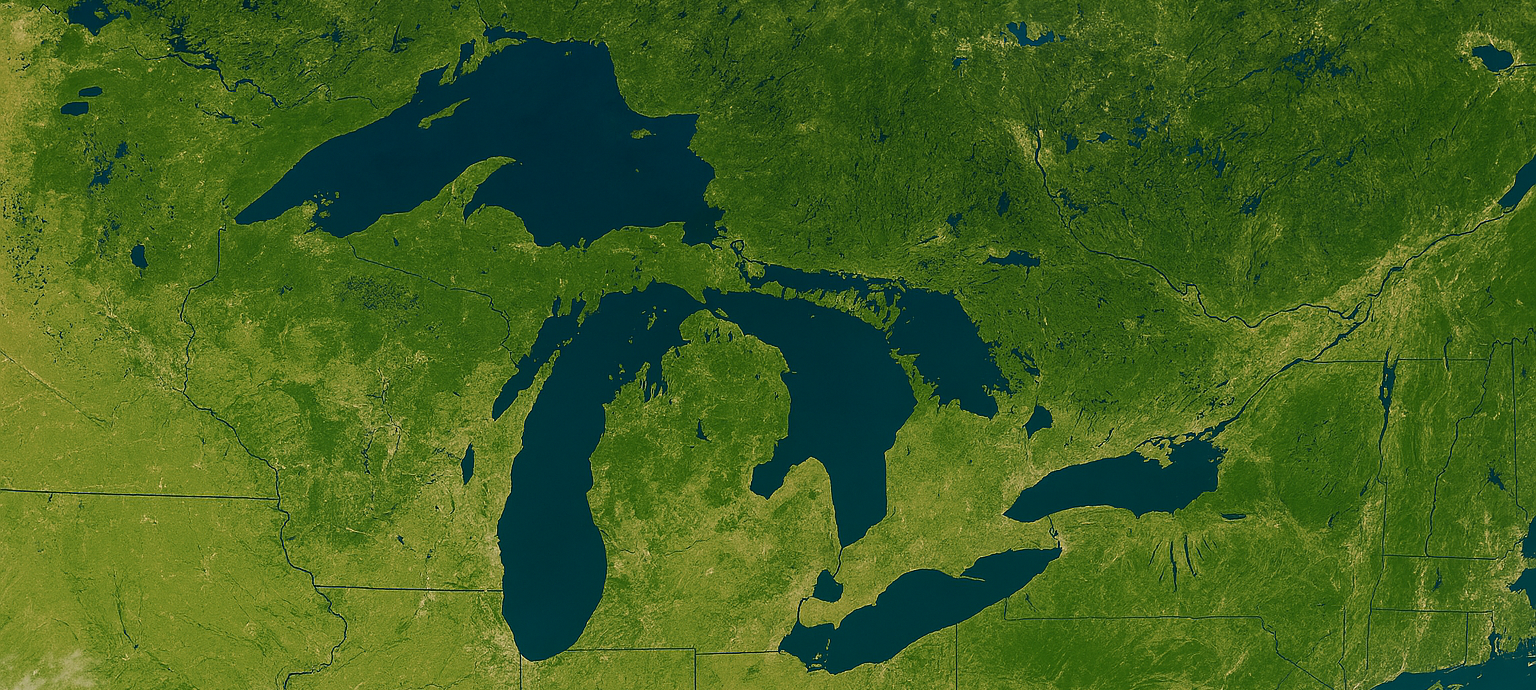Ensure availability and sustainable management of water and sanitation for all

Research
Global Water Futures Observatories
Western collaborates with top Canadian universities and global networks to advance freshwater research and innovation. Through partnerships in hydrology, climate science, and AI, it supports data-driven solutions for water security. Linkages with organizations like Global Energy and Water Exchanges and AI4Snow enhance predictive modeling and environmental monitoring, strengthening Canada’s ability to address complex water challenges through shared knowledge, infrastructure, and open-access data.
Water Engineering
Since the late 1970s, Western Engineering has been a leader in water-related research, advancing technologies in water resources, quality, source protection, and treatment. Faculty develop practical solutions to improve water system resilience, access, and environmental health. Their work includes filtration innovations, watershed modeling, and integrated management strategies that support safe, efficient, and equitable water distribution for communities locally and globally.
Systems Analysis to Water and Environmental Management
Professor Slobodan Simonovic is globally renowned for advancing systems analysis in water and environmental management. His research combines simulation, optimization, and decision-making to address complex societal and ecological issues. With over 550 publications and numerous awards, his work has shaped global thinking on risk, resilience, and infrastructure. He continues to influence engineering education, policy, and practice worldwide.
Teaching
Environmental and Water Resources Courses
Western Engineering offers a diverse range of graduate-level courses focused on water resource management. These courses explore key themes such as hydroscience, stormwater and wastewater systems, environmental geotechnique, groundwater flow, water quality, and sustainable building practices. Designed to equip students with advanced technical knowledge and practical skills, the curriculum emphasizes interdisciplinary approaches to addressing current and future challenges in environmental engineering and water resource management.
Civil & Environmental Engineering
The Department of Civil & Environmental Engineering offers a range of courses in drinking water treatment at both undergraduate and graduate levels. Key specialized courses include:
- Watershed Modelling
- Environmental Assessment Process for Water Resources
- Environmental Water Chemistry
- Modeling and Simulation of Wastewater Processes
- Water Quality and Treatment
- Groundwater Flow and Contaminant Transport
Master of Environment and Sustainability
As part of the Master of Environment and Sustainability (MES) program, the Engineering Solutions course equips students with critical skills in wastewater treatment and water pollution control. Through practical exercises and case studies, students learn to apply advanced strategies for managing pollution and treating waste-water.
Outreach
Great Lake Fish Ontario Supply Chain Analysis:
This free public report offers insight into fish harvesting and processing in Ontario’s Great Lakes region, helping to raise awareness about sustainable fishing practices. Released in partnership with the Great Lakes and St. Lawrence Governors and Premiers, the report explores how the fishing industry can reduce waste and create greater value by making full use of Walleye and Yellow Perch catches. It provides practical recommendations to enhance both ecological sustainability and economic performance, contributing to the broader 100% Great Lakes Fish initiative.
Water Brigades
Water Brigades at Western is part of a global student movement that works with local communities to design and build sustainable clean water systems. Students collaborate with community leaders to construct infrastructure like dams, storage tanks, and pipelines, while supporting the creation of Water Councils to maintain the systems. Integrated with health, sanitation, and economic initiatives, the program promotes long-term community development and sustainable access to clean water.
movement that works with local communities to design and build sustainable clean water systems. Students collaborate with community leaders to construct infrastructure like dams, storage tanks, and pipelines, while supporting the creation of Water Councils to maintain the systems. Integrated with health, sanitation, and economic initiatives, the program promotes long-term community development and sustainable access to clean water.
Ontario Water Consortium
As a member of the Ontario Water Consortium, Western University collaborates with federal and provincial governments to advance water security through research and innovation. With more than 50 researchers working in areas like wastewater treatment, water resource management, groundwater remediation, and resource recovery, Western builds on its research strengths and state-of-the-art facilities to develop solutions to current and emerging water challenges.
Operations
Waterless Urinals
Western installed three Urimat waterless urinals in the Faculty of Education as part of a pilot project to reduce water consumption. These units eliminate the need for flushing, saving thousands of litres annually. Made from 100% recyclable materials, they use a chemical-free, microbiological cleaning system for hygiene and odor control. This initiative reflects Western’s commitment to innovative, sustainable solutions that conserve resources and improve operational efficiency across campus facilities.
Water Consumption
Western tracks campus water consumption and implements conservation strategies across operations. An official review of the Energy Conservation and Demand Management 2019–2024 Plan showed that, despite a 6% increase in campus space since 2018, water use dropped by 9% and water use intensity by 14%. These measures strengthen resource efficiency and support long-term water sustainability.
Drought Resistant Landscapes
Western is incorporating drought-resistant landscaping across campus to conserve water and maintain green spaces during dry periods. Native plants and low-water species are prioritized for new projects, reducing reliance on irrigation while supporting biodiversity. These landscapes are designed to thrive in local conditions, lowering maintenance needs and promoting ecological resilience. This approach reflects Western’s commitment to sustainable practices that protect resources and adapt to changing environmental challenges.




